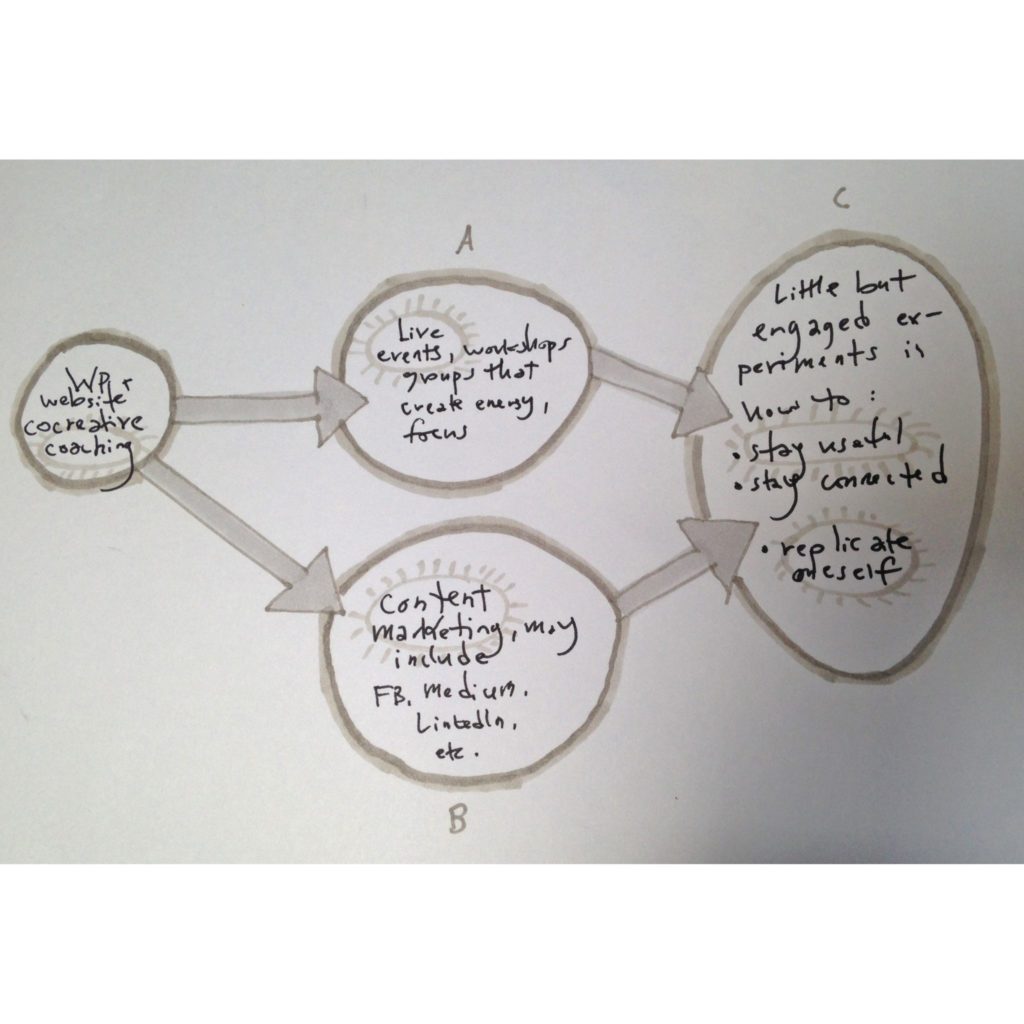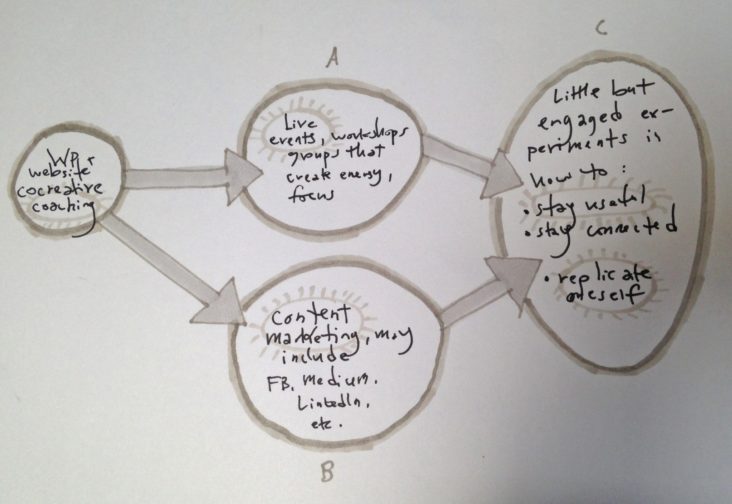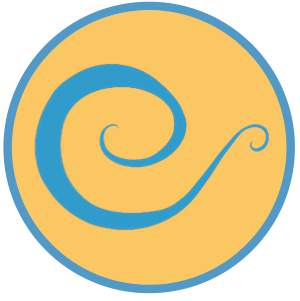Pursuing Relevant Replication


If you are a certain sort of person, with certain sorts of exposure to the idea of creating “passive income” or freeing yourself from the possible poverty of running a coaching business, or freelance business, or therapy business one client at a time, you have probably come across the idea that you can create online courses, or webinars, that will allow you to replicate yourself a million times and make a lot of money.
There may be images of sitting on a beach in Thailand or doing yoga retreats in Bali.
Good. But…
You may have noticed that an industry has cropped up around this, with lots of stock photos of people holding their hands up in joy at all the freedom they have by doing online courses, and how easy it is. You may have gotten the idea that all you need is perhaps a laptop, a video camera, and a little gumption.
Good. But…
I have noticed, from my own path, that there appears to be more than that.
That it is attractive to purveyors of online courses about how to make money selling online courses, to paper over some of the perhaps deeper, or harder, aspects of how these things get done, in a sustainable, real, and helpful way.
I will be the first to admit: I am an ambitious, curious, shy, awkward, outgoing, and perfectly imperfect example of someone trying, himself, to do this same thing: I want to find a way to replicate myself:
- Because I love working with small business clients, and they need everything under the sun… and don’t have lots of money to pay me to do all of it for them…
- Because I love helping them (and myself!) solve the puzzle of how you craft a life that feels meaningful, caring, and fun (and keep yourself in coffee, scones and healthcare)…
- Because I see the potential that if I can find out how to do this better, I can help show others how as well
I could write a long polemic about the problems of most of these passive income teaching methods. But instead, I have decided to write about my own process through the weeds, so that is what this post inaugurates.
After having gone through many, many iterations of this idea, I have decided to take the core of what I do really well—what I am calling (today) WordPress + website co-creative coaching—and find a way to turn this into a practice where I can replicate myself.
Key points
- I don’t want to make as much money as I possibly can; I want to make the money I need to comfortably serve the people I want to serve, and free my attention from financial worry.
- I think that (1) is a healthier and sustainable model to assist us in the inquiry into how we can live together sustainably, than the “get rich” concept.
Process
- Use that which I do very well (the coaching)—where the Venn Diagram of my enjoyment clearly meets with my relevance to a hungry audience; continue to hang out in here, as it keeps my in touch with my audience in the intimate way that serves them best.
- (A) Set up live events (workshops, groups, free talks) that help me bring this model out into a group dynamic, while keeping engaged and alive with the process.
- (B) Use content marketing (blogging, email, etc.) to provide usefulness to my people.
- (C) Extend all of these into small experiments at self-replication (useful information while I am not there, or I am able to help a lot of people at once).
Replication criteria (a set of constraints to create information tools that stay useful)
The model here with (A), (B), and (C), is to do little experiments at self-replication, that don’t lose the very relevance and usefulness that made the coaching unique and special in the first place.
I want to thank Darshan Elena Campos for giving me support and advice about how to engage all the senses during teaching; for her impatience with cold and sterile online video trainings; for the push to keep it real and alive. The push, then, is to throw the following criteria into the pot, and use the alchemy of this experimentation to discover what seems to work best. I am going to include all the criteria I have for my own one-on-one work, and see how much of that we can bring to it.
- Useful. Learners feel their tangible needs were met (landing page built, plugins installed, work no longer stopped, etc.) (How does one speak to the common patterns among the audience, so that solutions still feel relevant to each one, and not so generic that they may as well just Google for no-cost solutions? How does one replicate the ability to draw upon a huge variety of as-needed resources, such as Marketing 101, Landing Pages 101, Design 101, and of course WordPress 101?)
- Encouraging. Learners feel loved and held; supported; encouraged and empowered. (How does one communicate this en masse?)
- Connected. I know I could make this part of (2), but it seems so important that am giving it its own number. (How does one accomplish this with a webinar or forum-supported platform? How does one accomplish this with an even less expensive do-it-on-your-own book or course? How does one leverage the power of the other learners in the community—a powerful thing—to generate a feeling of support?)
- Empowering. Learners feel they now have a greater sense of how it all works, extending beyond just the solving of their initial issue. (How does one plug the immediate solution-solving into a deeper bed of resources—videos, how-to materials, etc.)
- Multi-Sensory. This one is added for Darshan, who pointed out to me that not all learners learn the same way. (How does one create the greatest sense of fun and aliveness in a recorded video training? The biggest fun and community in a webinar? The most immediate usefulness and helpfulness in a published book?)
[comments message=”Have you had experience (positive/negative) with online courses about teaching online courses? What are your thoughts about my criteria?”]

